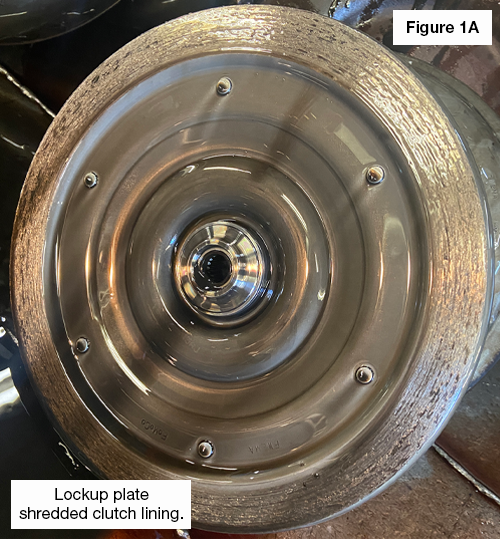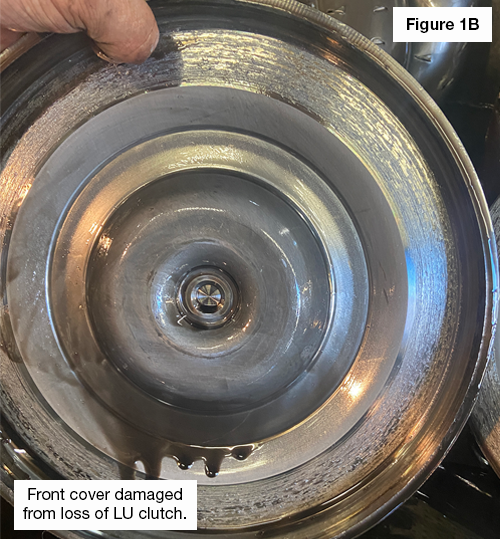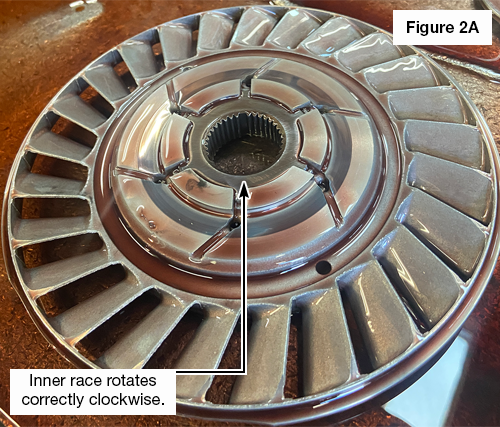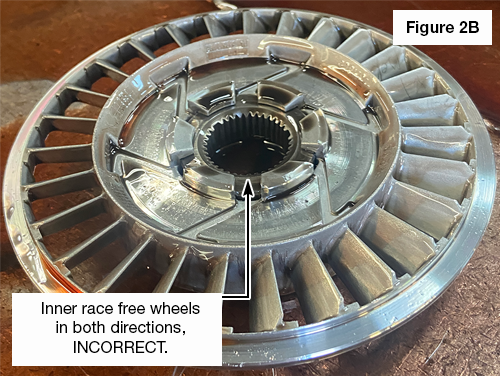June 02, 2023
Tips for Diagnosing a Ford 6F35 with Codes P073D or P177F
Jim Mobley
It is Friday afternoon at Cooter’s Transmission, and the last of the jobs are being wrapped up. Everyone is getting ready for spirits and good food at Buster’s Pub with some of the family members also stopping in to enjoy the evening with the crew.
A Ford 6F35 from a 2015 Ford Explorer rebuilt earlier in the week is installed, and something is not right. John, the installer, puts it into gear after filling with ATF, and it doesn’t feel normal. It has a vibration like a broken mount. In Park and Neutral, the engine runs fine, but when in gear, it feels like something is dragging the engine RPM down.
Darrell, the diagnostic tech, pulls the work order and comes over with the VERUS® PRO to examine the truck, noting it wasn’t doing this when it came in. It had the typical slipping torque converter and ran great otherwise. He looks over the list of parts replaced: torque converter, solenoids and clutch kit — all common replacement items.
After looking at both engine and transmission data, John and Darrell put their heads together and decide it would be a good idea to hook up a pressure transducer to the mainline pressure port on top of the case and perform a line pressure check. Upon checking, Park is at “55 psi”, Reverse at “90 psi min, stall 300 psi” and Drive at “75 psi min, stall 300 psi,” which means there is no indication of line pressure faults. They were also able to operate line pressure solenoid while monitoring pressure with bidirectional scanner command and transducer. Next, they decide to take the truck for a drive and see if all the gears function normally under a load. Lo and behold, the road test is good with all six gears and TCC. The only abnormalities are that shifts feel firm and clunky, coast downshift is pronounced and while idling in gear, it still feels like it wants to drag engine RPM down.
Suddenly here comes Jeff, the Canadian Rugby player turned mechanic. Jeff doesn’t mince words and hollers, “We all know Christian can’t build a transmission. It’s already a comeback.” Those would be fighting words; luckily Christian the builder did not hear Jeff’s comment. Surprisingly though, Jeff has turned into one of the best transmission technicians in the shop and is well respected.
Jeff gets involved and states, “Can’t you tell the converter lockup clutch plate is dragging? Let’s look at cooler flow.” The decision is made to remove the cooler return pressure port on back of the case and attach a flow meter diagnostic tool between the port with a hose and then to the removed hose to cooler out. This port will check flow after the entire cooling system.
After spending 15 minutes performing the cooler flow test, they find it’s normal at almost 1.4 gallons per minute while in Park/Drive at 1,200 RPM.
It is now 4:30 p.m., and Jeff decides to take the Explorer for a test drive. Christian joins him. After a 10-minute drive, they return, and Jeff says the stall speed RPM seems very low. You really can’t check stall speed because it’s already at or lower than idle RPM. Something is wrong with the converter, he thinks. Jeff can’t resist and mouths off saying, “I told you Christian can’t build a transmission. He probably put a valve in backwards and it’s causing the issue with converter.” Christian complains that Jeff is bullying him. Luckily the war of words did not go very far, and it’s now 5 p.m. so they all head to Buster’s. It is decided the 6F35 will be revisited Monday.
It never fails; after a few spirits, the problem vehicle comes into the conversation at Buster’s. Jeff states they were in the mall parking lot with no throttle, and it would drive aggressively all over. Christian states the only thing that could ordinarily lower a converter stall speed that low would maybe be the one-way clutch freewheeling in both directions. Yes, Jeff and Christian have absolutely hit the nail on the head; that is precisely what is wrong.
PROBLEM: The torque converter one-way clutch is freewheeling in both directions, which causes the sensation of an abnormally low stall speed!
Ford’s EcoBoost® engines are performance engines, especially at high RPM. Coupling that to a 6F35 transmission, the converter is usually what suffers the most. Converters come in with lockup friction lining usually shredded from the front piston of the converter (Figure 1) and the one-way clutch in the stator of the converter (Figure 2) blown through, especially with the 2.0-liter engine.
| Figure 1 – Lockup Friction Lining Shredded from Lockup Plate & Front Cover of Converter | |
|---|---|
 |  |
This is from the power of the EcoBoost® engine and possibly an inexperienced driver (maybe a young, high school-aged driver). If you are providing warranty, better check the driver!
| Figure 2 – Converter Stators from Different 6F35 Torque Converters | |
|---|---|
 |  |
In Figure 2A, one-way clutch is okay; the inner race rotates clockwise. In Figure 2B, the one-way clutch is damaged and freewheeling both directions. This is the actual problem the vehicle is experiencing. If you look at the damaged one-way clutch in Figure 2B, it doesn’t really look bad visually. This is very easy for the converter rebuilder to miss when rebuilding this converter.
SYMPTOM – Vehicle exhibits a vibration like feeling in gear and a sensation of trying to drag RPMs down. Stall speed is seemingly at an abnormally low RPM.
TEST – In a parking lot, place selector in Drive range, release foot from brake. If the vehicle will drive you aggressively with no throttle applied around the parking lot, then most likely the one-way clutch has failed in the converter and will require a replacement converter.
Thank you to Adolf Zierke who first discovered this complaint and to TavoMatic Transmission Parts for items utilized in this article.
Jim Mobley is a Sonnax technical communications specialist. He is a member of the Sonnax TASC Force (Technical Automotive Specialties Committee), a group of recognized industry technical specialists, transmission rebuilders and Sonnax Transmission Company technicians.
June 02, 2023
Jim Mobley
Required
Recommended
Required
Recommended
Required
Recommended
Required
Recommended
Required
Recommended
Fits any of 4 locations.
Required
Recommended
Required
Recommended
Required
Recommended
Required
Recommended
Required
Recommended
Required
Recommended
Required
Recommended
While Sonnax makes every effort to ensure the accuracy of technical articles at time of publication, we assume no liability for inaccuracies or for information which may become outdated or obsolete over time.